165 days at sea, no GPS: Quebecer joined international crew for global race
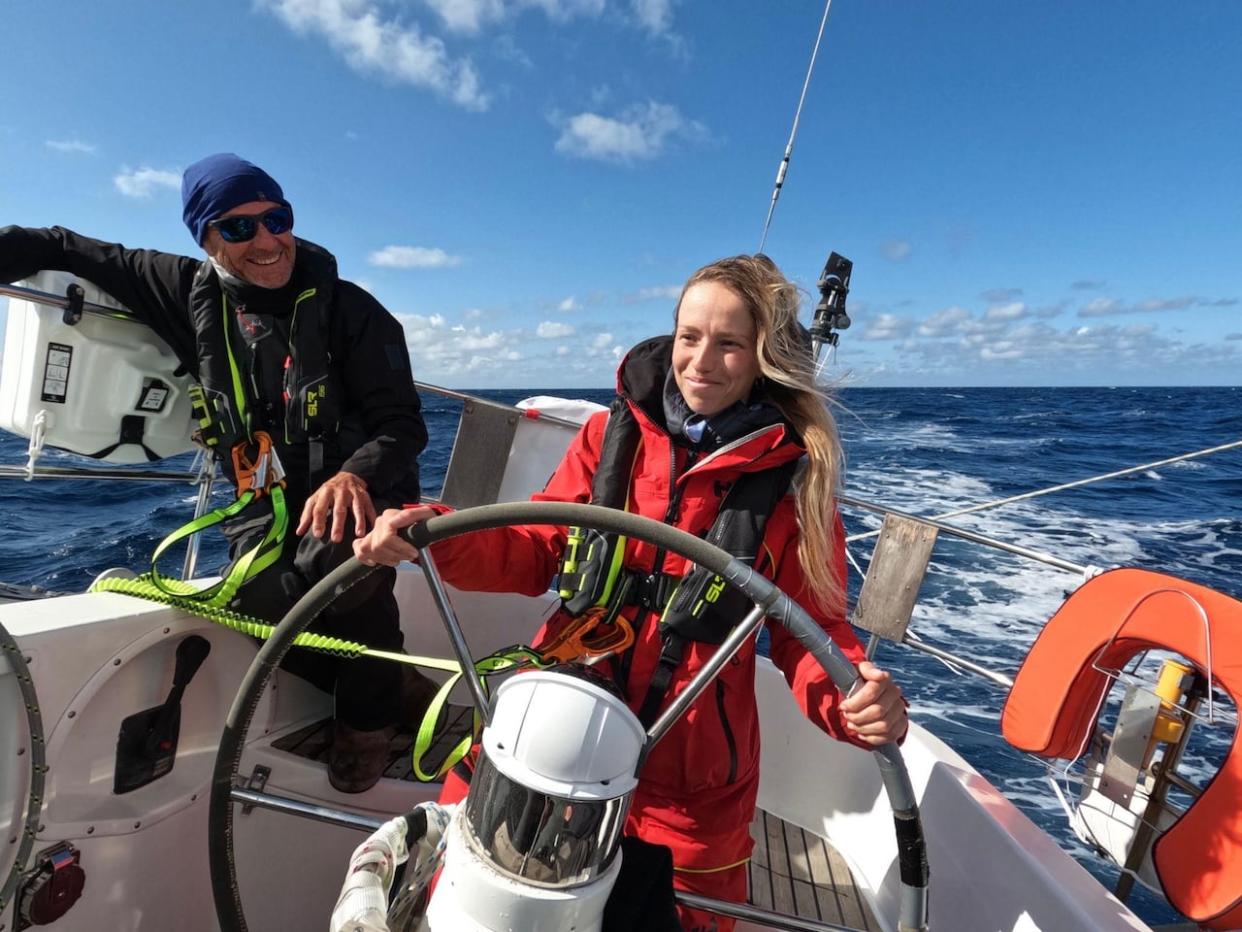
Catheryne Langford was at the start of a five-and-a-half month sailing voyage around the world when she spoke with her grandmother for the last time by satellite phone.
Her boat was taking on water and the line was fuzzy as Langford held the phone up in the air, trying to find a signal on deck.
"It was really chaotic," said Langford, who had been told her grandmother's health was rapidly declining and warranted an emergency call back home.
"I was calling on the phone, crying.… It was really like a movie scene."
About a month before, in September 2023, she had boarded a Swan 57 sailboat with 10 strangers to spend 165 days at sea with no technology or navigational guides as part of the inaugural Ocean Globe Race.
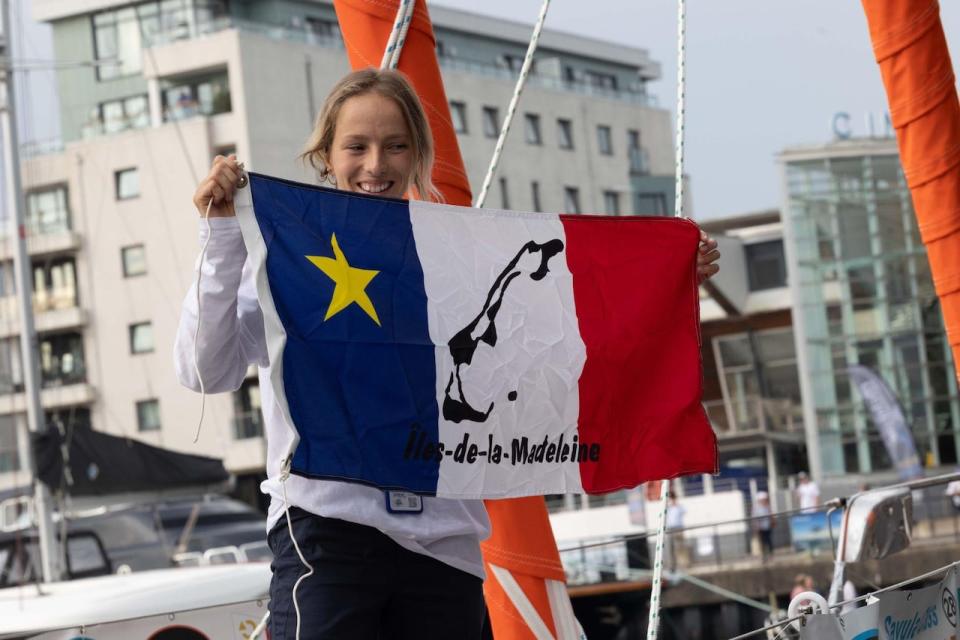
Langford, pictured before leaving on the international voyage, was the only Canadian on board. (Team Explorer/OGR2023)
When she and her crew aboard the Explorer arrived at their first stop in Cape Town, South Africa, Langford received the news that her grandmother had died while she was at sea.
"I had to say goodbye to her by phone," said Langford. "My world on shore was falling apart."
After completing the journey around the world last month, Langford, who is from eastern Quebec's Magdalen Islands, says the race pushed her outside her comfort zone.
She was the only Canadian to join one of the teams of amateur sailors in the first edition of the global race.
A race for amateur sailors
Just over 200 people were selected out of thousands of applicants, says race founder Don McIntyre.
"The definition of adventure is any outcome with any activity with an unknown outcome. And that's something that is integral to the human spirit," said McIntyre.
"And now everyone's talking about it and there's a lot of interest in the next edition, which will be in 2027."
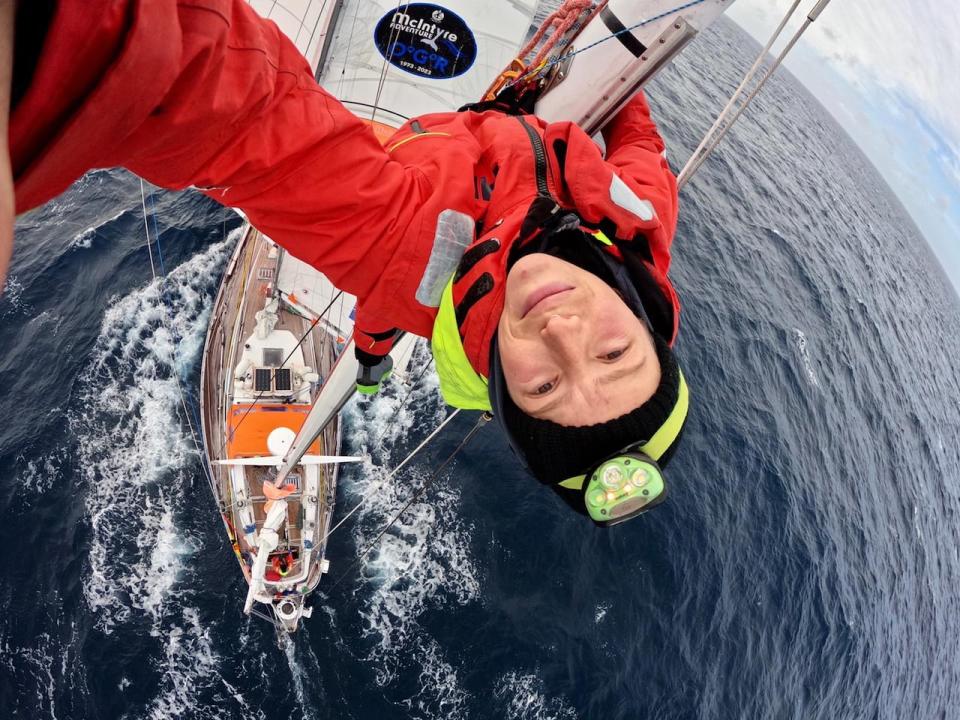
Langford says there were several challenging aspects of the journey, including the financial cost of the trip as well as the close quarters on board. (Team Explorer/OGR2023)
A lifelong sailor from Australia, in 2014, McIntyre had the idea to recreate the Golden Globe Race — the first solo non-stop race around the world.
McIntyre's concept included amateur crews of eight to 12 people, paper charts, sextants (navigational devices that require no electricity or GPS) — and no autopilot.
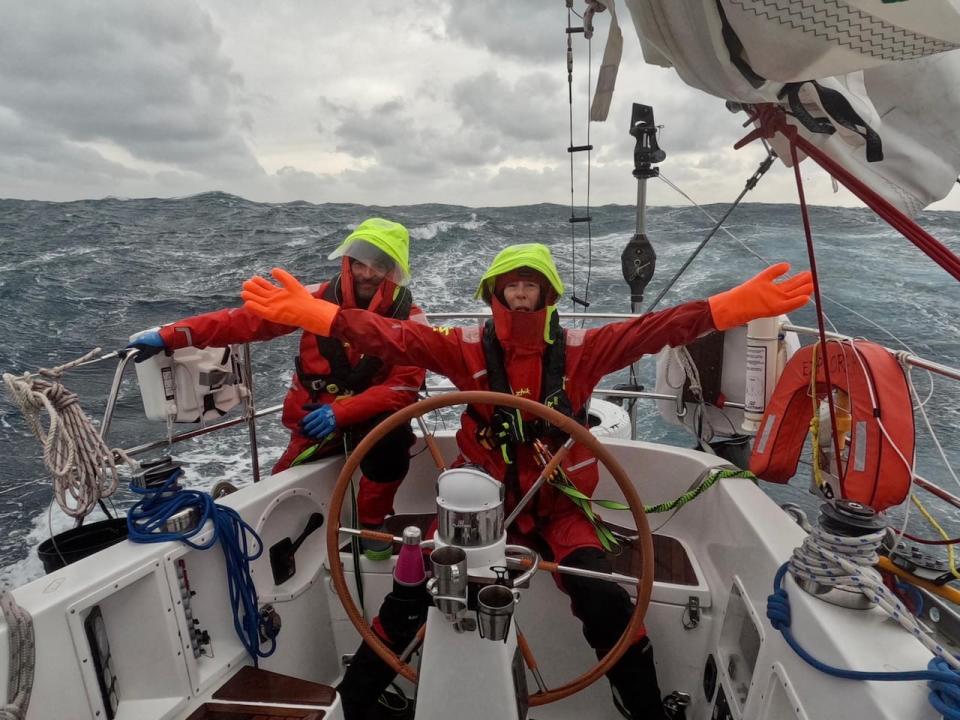
Jill Colmber at the helm in the Antarctic Ocean alongside sailor Christian Ferree aboard the Explorer. (Team Explorer/OGR2023)
"[There's] a certain serenity when you bring it back to the racing the same way as it was in the early '70s," said McIntyre.
"If you want to listen to music, you have to have a cassette tape player. And it keeps the cost down and makes it far more romantic."
For this edition, participants ranged from just 17 years old to 71. He says typically these kinds of sailing races have been reserved for professionals.
He says the teams tried to make it a "responsible risk-taking endeavour" by having safety equipment and training for all of the selected sailors.
'Not all rainbows and butterflies,' says Langford
The trip, consisting of three legs around Cape Horn, Cape of Good Hope and Cape Leeuwin had strict rules. The boats had to be self-contained during the voyage until reaching their stopover and crews could only swap out up to 70 per cent of the team.
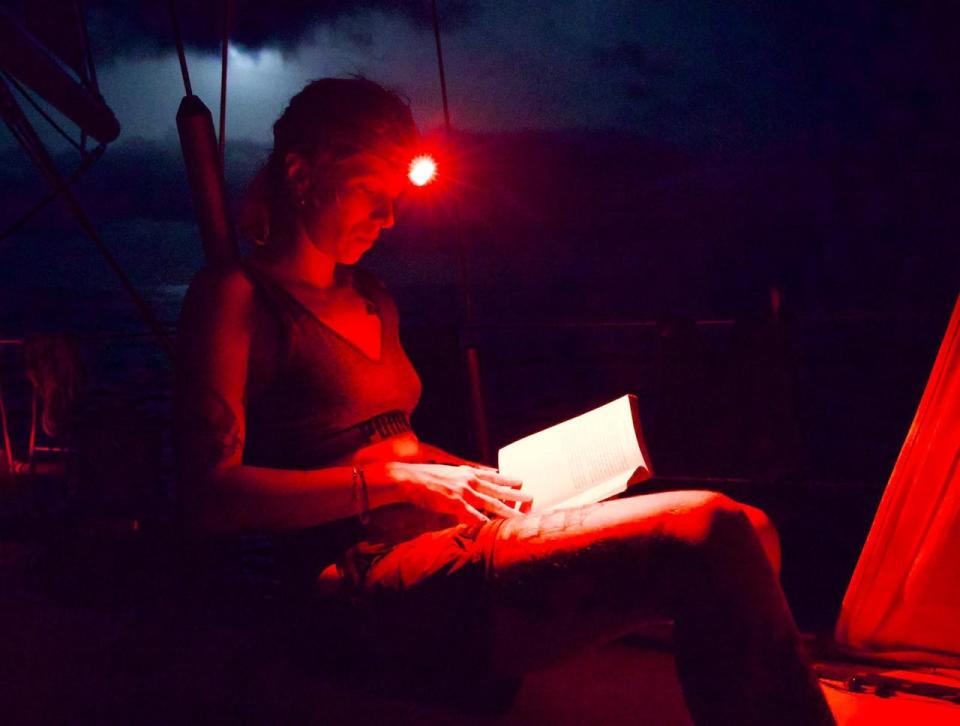
Langford says there were times where the journey became extremely challenging on board. (Team Explorer/OGR2023)
That's what Langford had to do just a couple months in: leave for six weeks to care for her boyfriend who got into a serious sailing accident.
"I didn't know if I would come back because I needed to take care of my boyfriend, my family and myself," said Langford.
"[But] I had to go back to the race because it was my dream."
Although Langford had set her sights on the race as a way to mark her 30th birthday, she says it was filled with challenges.
In addition to financing the trip — an expense that cost her $80,000 and many months of preparation — she says one of the biggest challenges was the social element.
Her international crew fluctuated between eight and 11 people and included an Australian captain and sailors from France and Ireland.
For months, she lived in "a small environment with people who are not your friends, not your family and you don't have your own comfort," said Langford.
The last leg of the trip — a total of 69 days at sea — from Uruguay to England was particularly intense.
LISTEN | Langford says sailing without technology made her feel like 'the only person in the world':
"At the end we were gas rationing," said Langford.
"We were really late, so no hot drinks. We had a cold lunch … no shower on board, so you shower with a cold bucket of sea water."
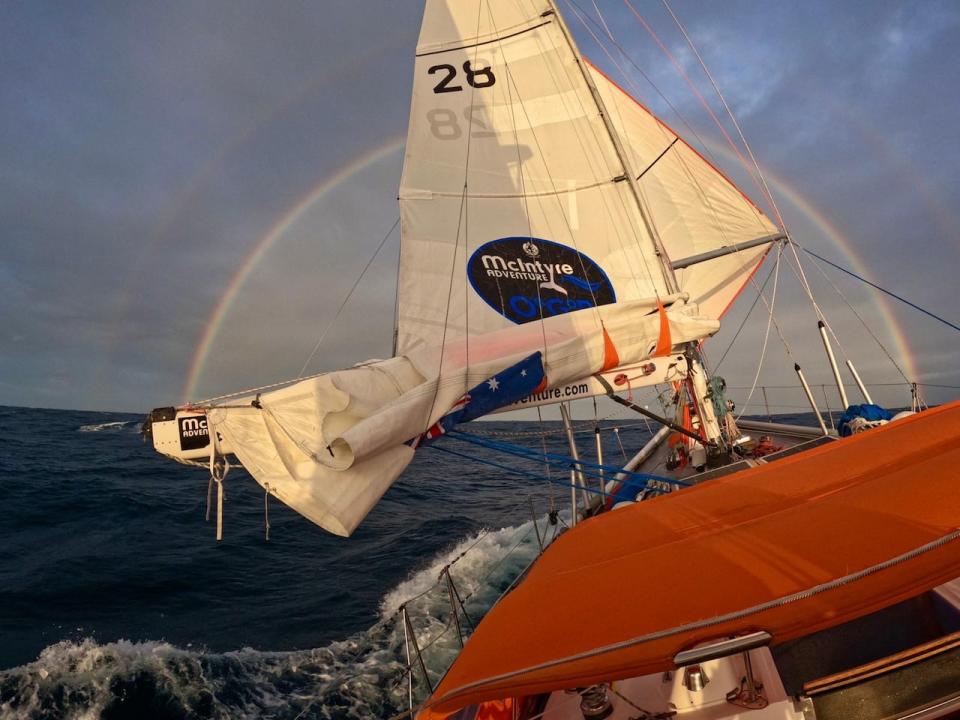
The team on board the Explorer witnessed a double rainbow in the Tasman Sea during the race. (Team Explorer/OGR2023)
Crossing the finish line as one of the last teams to arrive, she says she reflected on the "need to keep going."
"Oh my God, it was a really strong feeling … I'm proud of what I achieved," said Langford.
"Even if it's a dream, it's not all rainbows and butterflies."


